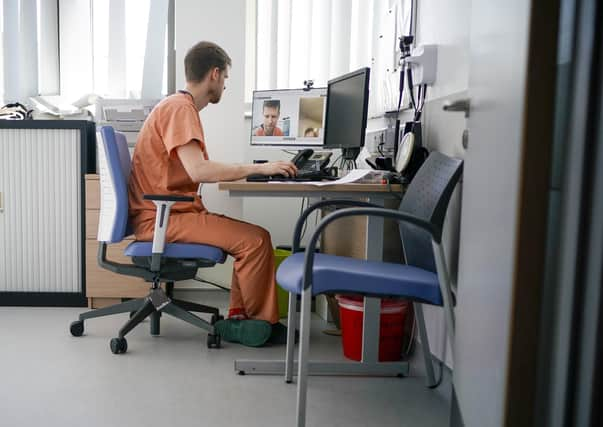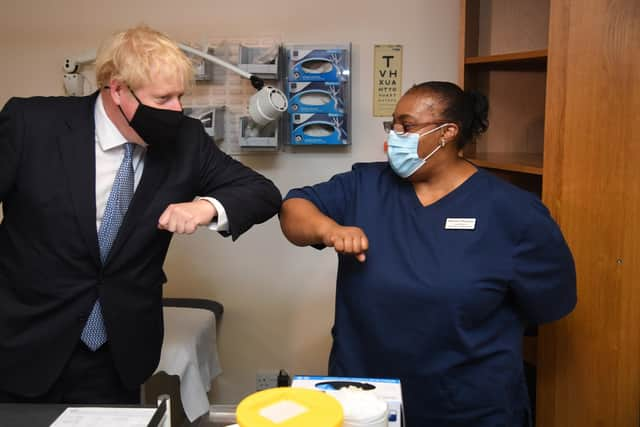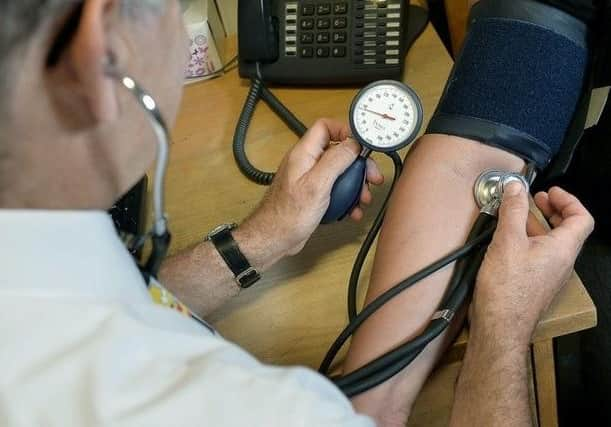Patients deserve better than ‘care by phone’ from their GP – Jayne Dowle


A survey of 1,000 GPs conducted in April by the Royal College of General Practice found that the majority of consultations were now taking place via telephone or video call. Just one in four GP appointments was face-to-face.
In the four weeks to April 12, 71 per cent of appointments were delivered by telephone and 26 per cent in person. Over the same four-week period in 2019, 71 per cent of appointments were face-to-face and just a quarter by telephone – almost the reverse of the situation 12 months later.
Advertisement
Hide AdAdvertisement
Hide AdThings may have eased slightly since those early days of lockdown, but the point remains. After years of debate about the suitability and efficiency of remote GP consultations, they are now here to stay. How will this impact upon the nation’s health and wellbeing?


Whilst all the attention has been, rightly so, on treating and beating coronavirus, countless people have been suffering in silence. Serious life-threatening diseases such as cancer have not gone away; but how many worried individuals have been too afraid to bother their doctor with their concerns for fear of adding to the burden of the NHS? How many elderly or vulnerable people have found accessing their GP during this difficult time too confusing or onerous?
I understand that all surgeries have had to adapt and adjust to new ways of working at bewildering speed. However, provision has been patchy, at best. My 70-year-old mother-in-law, who is vulnerable with mental health issues, developed a mysterious pain in her leg a couple of months ago. She did manage to see her GP in person, who sent her directly to hospital to receive urgent treatment for a suspected deep vein thrombosis.
The follow-up care was perturbing however. Usually, we accompany her to important meetings, but telephone appointments don’t always run to time – or even happen. Also, it’s difficult for doctors to explain complex information over the telephone when the patient is not mentally A1. Sometimes she doesn’t even remember where she has put her handset.
Advertisement
Hide AdAdvertisement
Hide AdFor my dad, on the other hand, telephone appointments with his GP have been a godsend. With a serious heart complaint and COPD, he shielded from March until this month. Every time he had a health worry, he spoke to his trusted doctor without any anxiety about attending his surgery.


Clearly, there is no one-size-fits-all solution. But if we are to accept that remote appointments are here to stay as we emerge from lockdown, the Health Secretary, Matt Hancock, must devote much more time and care into creating ultra-reliable, secure and easy-to-understand measures that enable them to happen without risk.
I’d argue that face-to-face appointments should be prioritised for those with young children, who literally cannot speak on the telephone, and those who are able to travel safely to the surgery but may have difficulties with understanding remotely.
The next most important point to address is the ability of GPs to deliver advice and action by remote means.
Advertisement
Hide AdAdvertisement
Hide AdIt’s difficult to predict how the situation in each surgery will evolve to respect safe social-distancing measures. However, it’s conceivable that all GP practices will have to adopt some level of flexible working, which will mean working from home for part of the week at least.
Mr Hancock must pay heed to the Royal College here. Its survey found that around half of the GPs it polled have been unable to work from home during the coronavirus outbreak; 63 per cent of these said that lack of access to technology was a factor.
Among the half of GPs who are able to work from home, 55 per cent said virtual private network (VPN) connectivity – the ability to link up securely to their practice systems and patient data remotely – was a problem.
Efficient primary care IT systems are a top priority. Royal College chairman, Professor Martin Marshall, says that his profession is facing barriers.
Advertisement
Hide AdAdvertisement
Hide Ad“Many GPs, for example, are telling us they are having technological difficulties with working remotely from home due to a lack of adequate hardware and software,” he warns.
This is no time for the Department of Health to take its customary approach when dealing with such issues – a high-handed inability to listen to professionals followed by delay and obfuscation.
No-one, least of all family doctors themselves, would want general practice to become entirely remote. However, if we all have to adapt to new ways of living and working, we must be able to do so knowing that we are all safe in the hands of the NHS.
Support The Yorkshire Post and become a subscriber today.
Your subscription will help us to continue to bring quality news to the people of Yorkshire. In return, you’ll see fewer ads on site, get free access to our app and receive exclusive members-only offers.
Advertisement
Hide AdAdvertisement
Hide AdSo, please - if you can - pay for our work. Just £5 per month is the starting point. If you think that which we are trying to achieve is worth more, you can pay us what you think we are worth. By doing so, you will be investing in something that is becoming increasingly rare. Independent journalism that cares less about right and left and more about right and wrong. Journalism you can trust.
Thank you
James Mitchinson
Editor
Comment Guidelines
National World encourages reader discussion on our stories. User feedback, insights and back-and-forth exchanges add a rich layer of context to reporting. Please review our Community Guidelines before commenting.